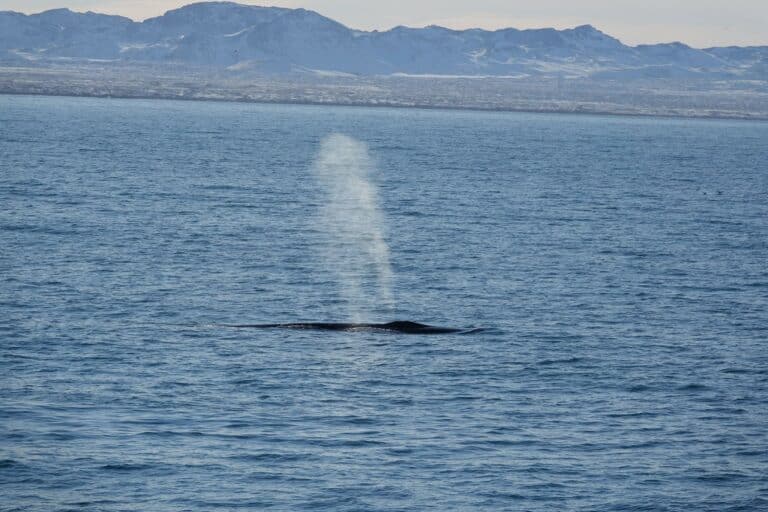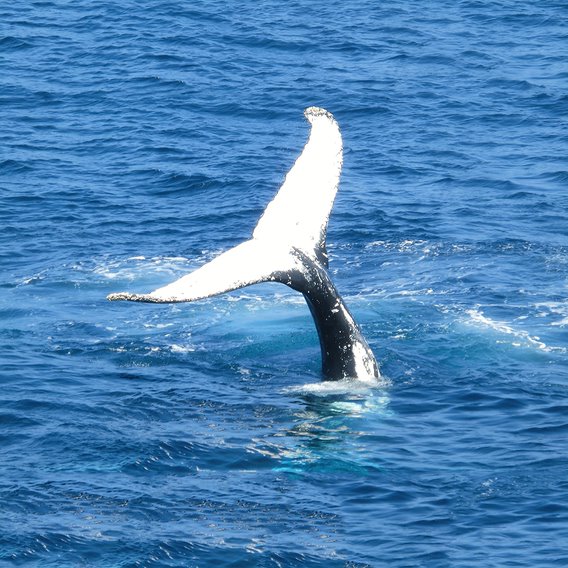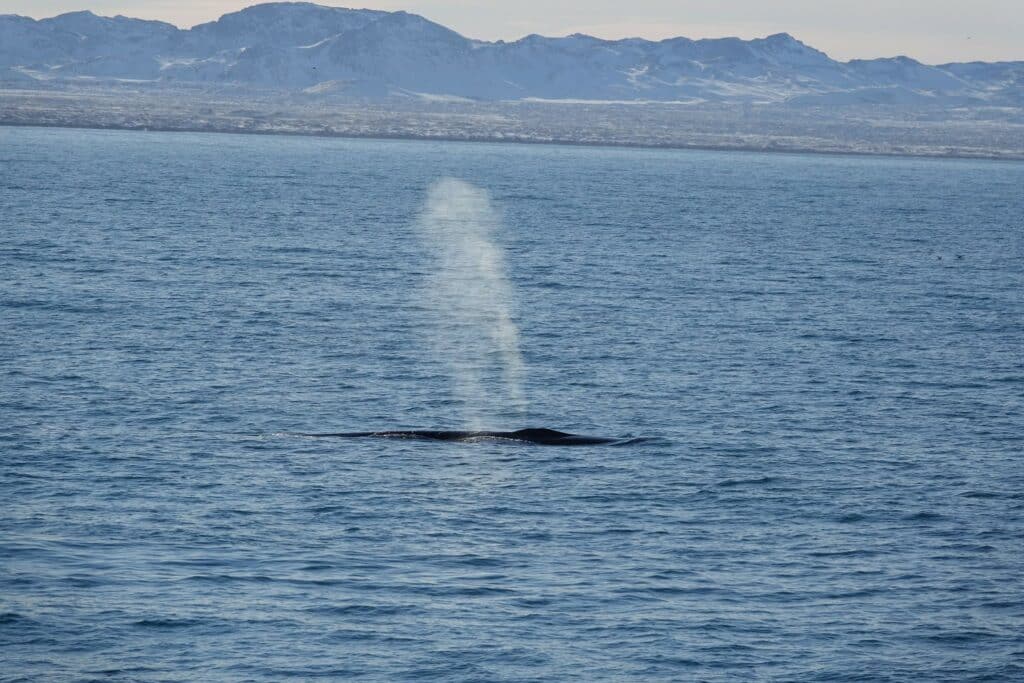Day in the life of a whale guide. *Spoiler* It is the best job ever!

By Lucky Byfleet
Do you want to be a whale guide? What does a normal day look like for one?
Being a whale guide has to be one of the most rewarding jobs in the world, but it is a long day! Especially during the peak season, when we do multiple trips a day. Whatever the time of year they all start the same, checking the weather forecast. Iceland is known for its changeable and often dangerous weather, and weather at sea is totally different from land, we check several different weather pages, reading the charts ourselves, but also we go and have a look at the clouds outside. Sometimes experience and local knowledge are more accurate than the forecast!
Next, having confirmed that it’s going to be a lovely day, we head to the office, check passenger lists for any special requests (we have marriage proposals on the boat more often than you’d imagine.) Then we go down to the superyacht. Despite being a whale guide we also look after the yachts, helping keep them in tip-top condition, both in regards to safety and comfort! We have a cup of coffee with the other crew members and chat about our plan for the day, whether we’ve heard of sightings in a specific area, or if there are any customers with special requirements, including whether we have kids on board.
Finally, it is time to welcome our lovely customers. They are greeted by the captain as they enter the yacht, then ticked off the passenger list by the whale guide. When everyone is on board the whale guide then gives an introduction including a safety speech to all our passengers, introducing all the crew and giving a brief overview of the cruise plan, and answers any questions. The whale guide will also teach the customers how we spot whales so they can join in the fun!
Everyone is free to go where they like on the yacht, but the whale guide will dress up in their warmest clothes, (it’s always colder the higher you go because of the wind chill,) grab their radio to talk to the captain and other crew members, their headset for describing what they are seeing over the tannoy to the public, and a warm drink. Once kitted out they will head as high up on the ship as they can and start their watch.
If the weather is dry people will often come up and chat, our whale guides love to meet people from all over the world, and share their knowledge of ocean creatures and Iceland in general. However, if it’s rainy or very cold then people often choose to stay in the cosy saloon or the wheelhouse, looking out from the snug warmth, knowing the guide will call them once they spot something awesome.
In Reykjavik, we are lucky that we get whales all the way into the harbour, but more commonly we find them out in the feeding grounds or near a fjord called, rather appropriately, whale fjord. This means that the whale guide must always be actively looking, on the alert, they might spot a cetacean only a few minutes after leaving the harbour, or it might be over an hour of standing, patiently looking out to the ocean.
When they, or the other crew members, (everyone keeps an eye between their other jobs), spots a cetacean they call the approximate location on the radio as the hour of a clock, using the front of the boat as 12 o’clock then the distance. For instance 4 o’clock 500m. It might not be exactly right, and estimating distance can be very tricky at sea, but it is a lot more informative than, “Over there!” If there are useful landmarks, like the mountains we use them as directions too.
After identifying the animal the whale guide will start talking about it on the loudspeaker, describing the creature in general and then narrate and explain any specific behaviours the animal may be exhibiting. By educating the public about the creatures, the ocean environment, and the threats they face we hope to encourage wider respect for the oceans, and stop people from paying to view captive cetaceans.
Our guides and staff take lots of photos to share with our customers directly and on social media, but also to use to identify individuals for international tracking of whales.

On the way back to shore our whale guides keep an eye out for any more animals, but talk more broadly about the landscape and culture of Iceland, and answer any questions given to us. Possibly more importantly our whale guides give them recommendations for dinner, there’s nothing like being out on the ocean to work up an appetite!
Once our lines are holding us safely to the pier our guides help our customers disembark, then clean the whole ship before returning to the office, any lost property in hand. If there is a second trip they look at the passenger list again, but if not then at the office they write the blogs and report any individual whales identified, before locking up and heading home! Ready to go out on the water again the next day.
Coming to Iceland people often have whale watching and the northern lights at the very top of their bucket lists, and rightly so! We love showing everyone both. If you have booked onto a whale watching tour with us you can come out with us to see the aurora for half price, but still aboard the luxury superyacht Amelia Rose.
For more information on how we search for whales and dolphins, and learn how to be a pro- whale guide yourself have a look at our guide here.
Sea Trips Reykjavik sail daily from Reykjavík Old Harbour, Iceland. Our yacht, Amelia Rose was built as a superyacht in 2003 and as such is extremely comfortable and stable. However the seas often change here, and people are affected differently by the movement of the oceans. As such we have seasickness tablets available for free at the bar. We also have warm blankets in the yacht for your comfort, though the inside of the ship is extremely warm and snug.
For more information on our boats, our trips and any accessibility questions please email us at seatrips@seatrips.is and be sure to look through our FAQs.


